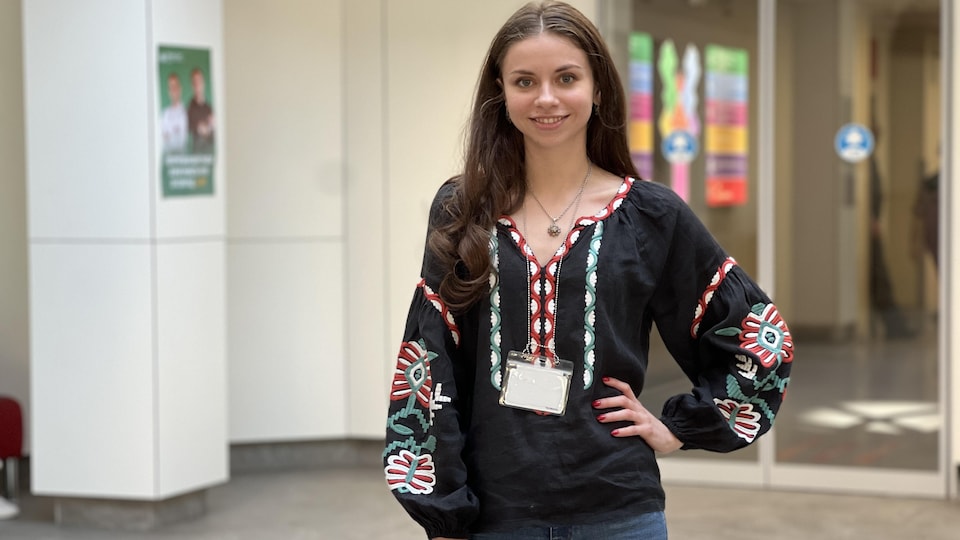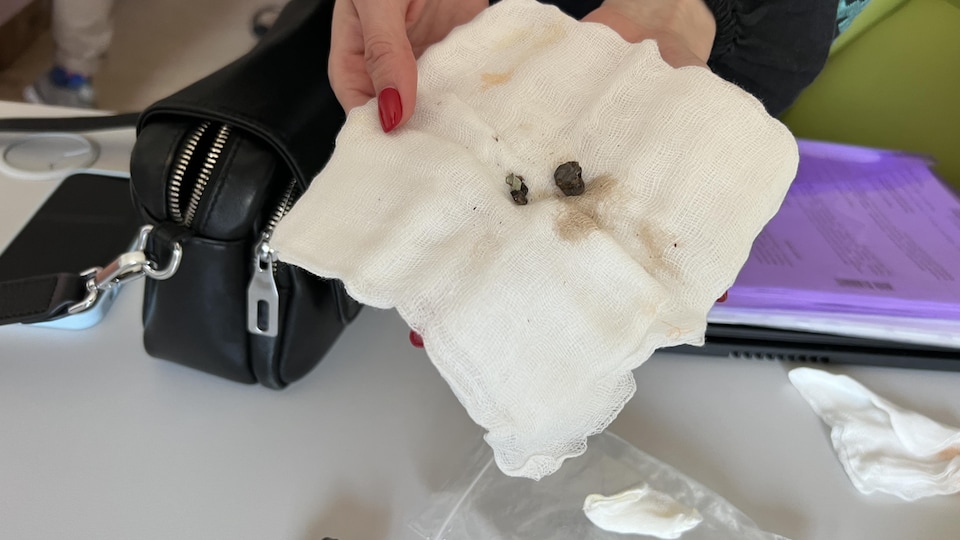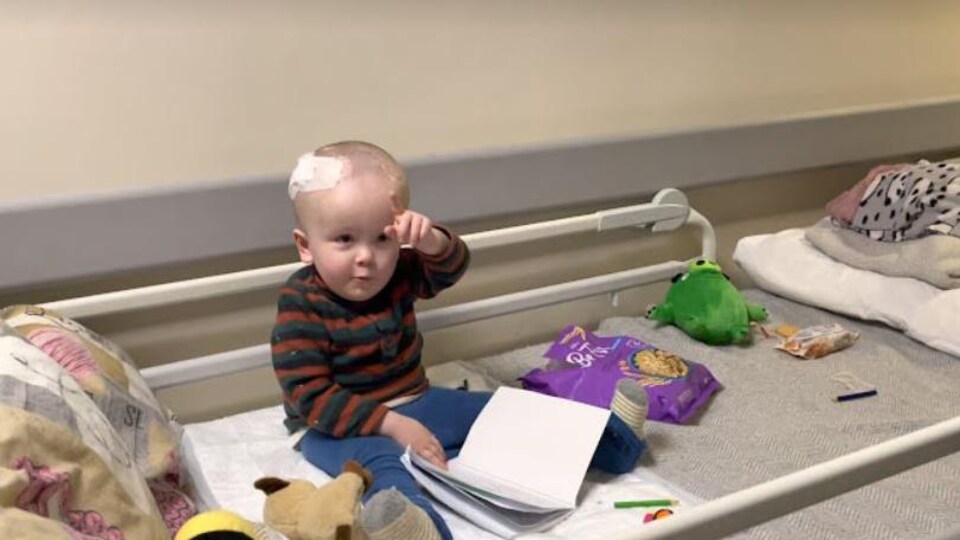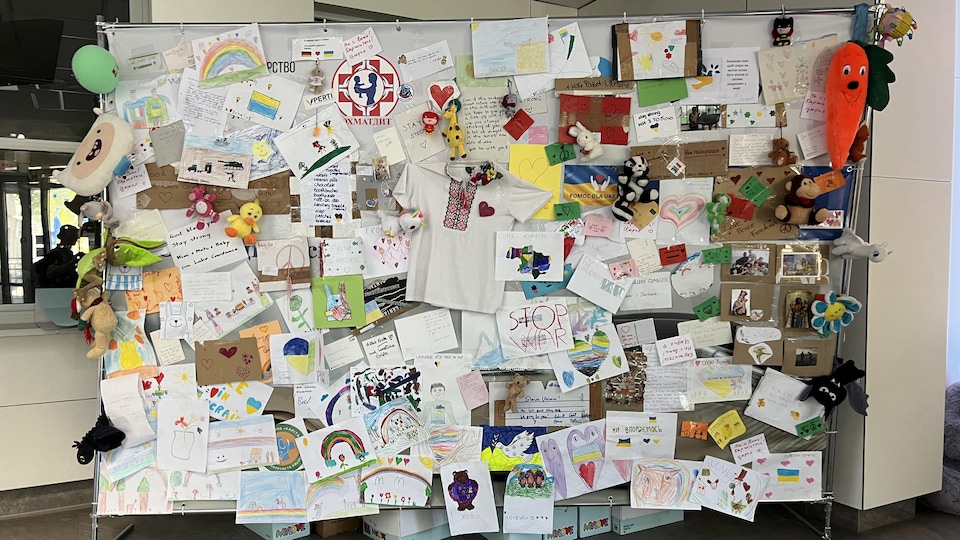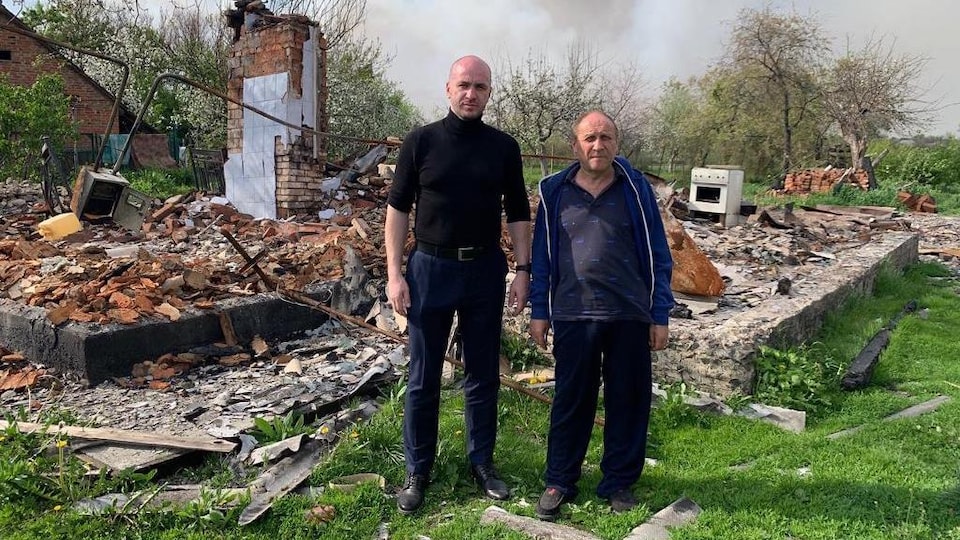“What can be seen in a woman’s satchel? Anastasiya Magerramova asked, pushing her purse and lipstick. He pulled out a small plastic bag containing bandages of blood.
Then, the girl answered his question without waiting. In this handbag, we can also find Pieces of missile, shrapnel from Barbara’s leg.
In bandages, pieces of iron, glass and stone, fragments removed from the bodies of young patients. I have to keep them. These are war crimes.
At the age of 27, Anastasiya Magerramova is the chief public relations officer at Ohmatdyt Hospital, the largest treat for sick children in the whole of Ukraine.
The hospital’s vocation changed overnight with the Russian invasion. The duties of the public relations officer were also shaken; no more questions about showing healed, smiling children. I’m not used to seeing kids missing a finger, piercings in the face, shrapnel on the head or chest. And I’m still not used to seeing dead children. But it’s important in the film, to keep all that.
For weeks, Anastasiya Magerramova’s phone was filled with hard -to -watch pictures. A small catalog of the horrors that war inflicts on the most vulnerable.
This child was hugging his mother when she died. This young man whose foot was pierced by shrapnel. This teenager who was allegedly shot by Russian soldiers at point-blank range …
A lot of drama was documented, which was published on the hospital’s web page (New window). Testimonies that are sometimes difficult to collect from mourning parents, brothers or sisters in shock. I don’t cry in front of them, but sometimes I have to find a little corner to cry. It’s hard to see and hear that every day.
It also has a mother who lost a son and her husband in an attack, and at the time her youngest was injured. This woman, Anastasiya Magerramova did not feel strong enough to approach him.
The orphaned mother who finally came to see him. Can I send you a photo of my deceased spouse?, he asked her. No good memories. Pictures there were bullets in the body…
Thousands of challenging stories
Hard story, many Ukrainians hear these days. The country’s attorney general claims to have identified more than 13,000 possible war crimes against civilians.
In a kyiv park, we met a young lawyer who had also heard many of these stories. People want to talk. They want to shareassurance of Yurii Bilous. They want to confess.
The lawyer takes their testimony, asks specific questions, looks for details, evidence. People talk to me about murders, torture, gang rape. I was told of thefts, thefts on houses or apartments. There are so many possible war crimes targeting civilians.
The lawyer was particularly affected by fate of an ordinary villager, a man in his sixties, who encountered a patrol of soldiers outside kyiv. The man was allegedly abducted, abused and imprisoned. A six -week trial, which ended with the exchange of Ukrainian citizens for Russian soldiers.
Documents to denounce
Yurii Bilous does not believe that everyone who is guilty will be punished. Instead, he hopes that every testimony gathered will help prove what he considers an attempted genocide against Ukrainians. The Russian soldiers did not come here just to overthrow our government. I am sure the Russians came here to destroy our people and our way of life.
The lawyer believes that Russian politicians are also guilty of this genocide, a crime he knows is very difficult to prove in an international tribunal.
Despite everything, Yurii Bilous continues to travel to meet with the victims, to collect their testimonies and send the evidence to the investigators concerned.
The lawyer does not receive a salary for sometimes difficult emotional work. It is rather a duty, a job for our country, for our people.
Anastasiya Magerramova also sees things the same way. He wants the whole world to see them innocent people who have done nothing wrong, suffering because of the Russian aggression.
And in this fight, the maid explained, the phone used to document the children’s injuries was her weapon.
Source: Radio-Canada
